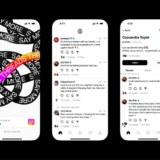Meta’s Reset of Political Content Settings Sparks Outrage Among Users
In a surprising twist for social media users, a bug in Meta’s platforms has caused widespread frustration and concern. Democratic strategist Keith Edwards recently alerted Threads users to check their Instagram settings designed to limit political content from accounts they don’t follow. To the shock of many, these settings appeared to have changed without their consent.
Journalist Taylor Lorenz was among those affected. She confirmed that her settings had reset every time she force-closed the Instagram app, a phenomenon we’ve verified on our own devices. This peculiar behavior raised eyebrows and questions about Meta’s control over user preferences and privacy.
Meta, the parent company of Instagram and Threads, quickly responded to the uproar. “This was an error and should not have happened,” Meta communications director Andy Stone posted on Threads. “We’re working on getting it fixed.” While the admission of fault was swift, it did little to quell the growing concerns among users about the integrity of their settings and the potential manipulation of their feeds.
The opt-out setting that limits political content recommendations was introduced by Meta in March. The feature was part of an effort to give users more control over the type of content they see. At the time, Meta clarified that the setting wasn’t intended to limit political content reaching users but rather to prevent unsolicited political posts from appearing in their feeds. This move was seen as a way to reduce misinformation and give users a more tailored experience.
However, the recent glitch has thrown a wrench into these plans, causing users to question the reliability of Meta’s settings. The unintentional reset of preferences has implications far beyond mere inconvenience. It touches on the delicate balance between user control and platform management, a balance that Meta has struggled to maintain in the past.
The incident has also reignited debates about the role of social media giants in managing political discourse. With platforms like Threads and Instagram playing significant roles in shaping public opinion, the ability to control what political content is seen—or unseen—by users is a powerful tool. The recent bug has inadvertently highlighted just how precarious this control can be.
As Meta works to resolve the issue, users are left to grapple with the implications of the error. The incident serves as a reminder of the complexities involved in managing vast social media ecosystems and the importance of transparency and accountability in these digital spaces.
For now, the focus remains on whether Meta can quickly fix the bug and restore user confidence. But the broader questions about privacy, control, and the role of social media in political discourse will likely persist long after the immediate issue is resolved.






